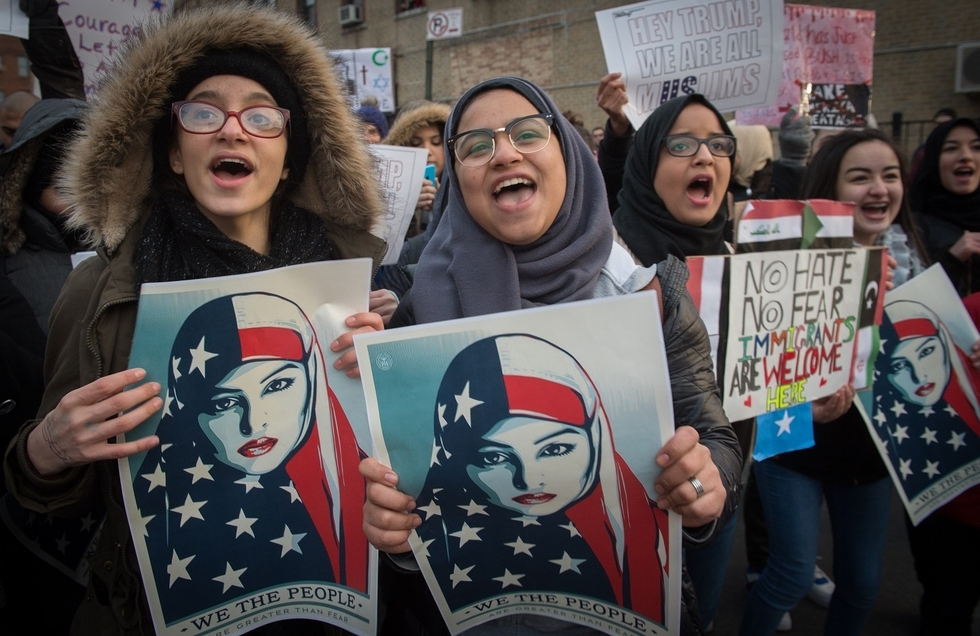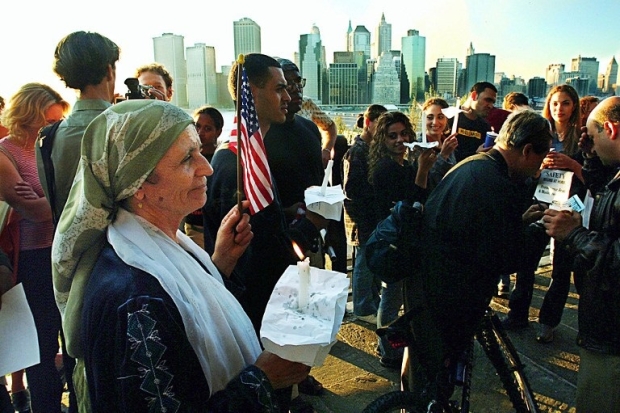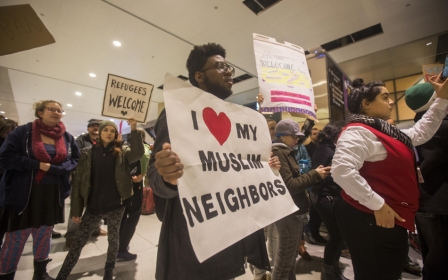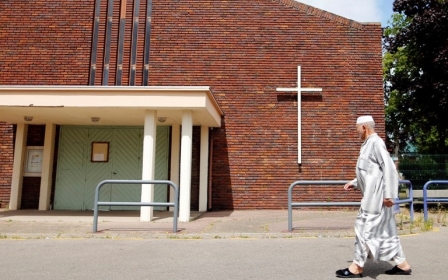Arab views on America: We like you as people, we hate your policies

A new public opinion survey of eight Arab countries shows that 65 percent of individuals questioned said they had "very positive" or "somewhat positive" attitudes toward the American people. At the same time, 61 percent of the same sample indicated "very negative" or "somewhat negative" views of US foreign policy.
That Arabs continue to distinguish between the American people and American foreign policy should be good news for the United States. This is especially noteworthy since Donald Trump announced his "America first" worldview early in his presidency, one that many saw as marginalising the rest of the world.
Many even describe Trump as a bully who, under the guise of "America first”, has sacrificed multilateralism for unilateralism and diplomacy for crudeness
One wonders if Trump's narrow and self-serving conception of US relations with the international community will erode the goodwill of Arab citizens toward their American counterparts.
In fact, the same question, asked a year ago, yielded 73 percent positive Arab attitudes toward the American people, a figure 8 percentage points higher than this year's survey.
Soft power
A Pew Research Centre study this year found that even though disapproval of Trump’s policies has caused the United States' global image to suffer, majorities of respondents in countries surveyed continued to have favourable views of Americans - though less so in the Arab world.
Some may attribute such positive perceptions to American "soft power", which for years has been part of US foreign policy. As opposed to hard power, it promotes positive relationships between nations based on diplomacy, education, economic aid, and other principles that do not rely on force or coercion.
Joseph Nye, who coined the term soft power, notes that "generally, soft-power resources are slower, more diffuse, and more cumbersome to wield than hard-power resources” and may take years to produce results.
Trump, the bully
Conversely, one would deduce that the effects of soft power programmes, which the United States has operated for many years (despite varying levels of funding), would also take a long time to reflect a decline. At this early point in Trump's presidency, are we seeing the beginning of such a decline?
The Soft Power 30's annual comparative study, which yields a ranking of countries' soft power strength (based on polling data and on social, governmental, and business factors), found that the United States lost its number-one standing from 2016. It is in third place in 2017, after France and the United Kingdom.
As Trump continues to embolden racist, white supremacist, and militaristic elements in American society, the Arabs' current positive opinions of Americans will continue to backslide
The authors explain: "The rise of Trump could be viewed as a threat to American soft power, not least because his kind of populist rhetoric is known for devaluing international alliances. The president has indicated his preference for hard over soft power…."
Indeed, US hard power is primarily what the international community is witnessing at present in the world arena - Syria, Iran, North Korea, Afghanistan, among others - as well as in the United States. Many even describe Trump as a bully who, under the guise of "America first", has sacrificed multilateralism for unilateralism and diplomacy for crudeness.
Policies or values?
In US Secretary of State Rex Tillerson’s speech to State Department employees in May, he said that "…guiding all of our foreign policy actions are our fundamental values: our values around freedom, human dignity, the way people are treated. Those are our values. Those are not our policies; they're values.”
By bifurcating such universal values - assumed to be held by the majority of Americans - and US policy, Tillerson sheds light on the differences between the American people and their government.
One example was in March, when Tillerson broke with tradition and did not personally present the State Department’s annual human rights report, suggesting to some that the Trump administration does not place a high priority on human rights.
It is no wonder, therefore, that the ACW survey uncovered divergent attitudes of Arabs toward the American people (largely positive) vs US policy (largely negative).
Perhaps as Trump continues to embolden racist, white supremacist and militaristic elements in American society, the Arabs' current positive opinions of Americans will continue to backslide. It is clear that the foreign policies of a bullying president who privileges hard power over humanistic approaches will compromise the hard-won effects of American soft power.
Such an approach will eventually erode the positive perceptions of Arabs toward the American people. It will be interesting to see the results of ACW’s annual survey in 2018, after another year of President Trump’s tenure.
Note: The poll was conducted by Arab Center Washington DC (ACW) in cooperation with the Arab Center for Research and Policy Studies in Doha, Qatar. There were 3,200 respondents to the survey, with 51 percent males and 49 percent females. The poll surveyed a randomly selected sample of 3,200 respondents in eight Arab countries, namely Egypt, Jordan, Kuwait, Lebanon, Morocco, the Palestinian Territories (the West Bank and the Gaza Strip), Saudi Arabia, and Tunisia, with an average of 400 respondents from each country. Polling was carried out between 14 September and 13 October. Interviews were conducted by telephone.
- Zeina Azzam is publications editor at Arab Center, Washington DC.
The views expressed in this article belong to the author and do not necessarily reflect the editorial policy of Middle East Eye.
Photo:Arabs continue to distinguish between the American people and American foreign policy (AFP)
New MEE newsletter: Jerusalem Dispatch
Sign up to get the latest insights and analysis on Israel-Palestine, alongside Turkey Unpacked and other MEE newsletters
Middle East Eye delivers independent and unrivalled coverage and analysis of the Middle East, North Africa and beyond. To learn more about republishing this content and the associated fees, please fill out this form. More about MEE can be found here.






